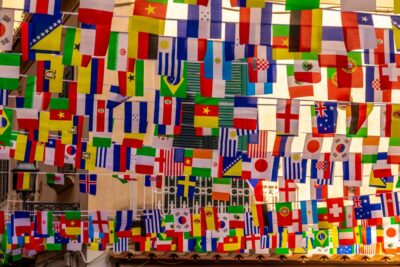Those who quickly vaccinate many people can rapidly gain popularity
So far, Latin American governments have had little success in the fight against the pandemic. But that is changing: countries like Chile, Brazil and Mexico have already vaccinated more of their total population than most countries worldwide. The only thing that must not stop now is the supply of vaccines.
by Alexander Busch, Latin America correspondent for Handelsblatt and Neue Zürcher Zeitung
For once, there is good news from the COVID front in Latin America: a few weeks after vaccinations began in about a dozen states, some countries are already in the top positions worldwide by number of first vaccinations. That’s true of Chile (5th), Brazil (8th) and Mexico (9th) by number of vaccinations per 100 inhabitants, according to Our World in Data (OWID) from Oxford University. But Brazil also ranks far ahead of Germany, France or Italy in terms of vaccination numbers administered, with nearly six million doses administered.
Chile’s record is the most impressive. With 12.43 vaccinated people per 100 inhabitants, the Andean country ranks first in the world after countries such as Israel, the United Arab Emirates, the United States and the United Kingdom. In the past seven days, only Israel has vaccinated more people than Chile.
The reason for the success is that the Chilean government already ordered vaccine doses from a large number of suppliers in the middle of last year. The government claims to have already secured 35 million doses. By June, 80 percent of Chile’s nearly 19 million people should have been vaccinated at least once.
Whether this will work cannot be estimated at present: The prerequisite is that supplies of vaccines continue.
Just how problematic the supply situation is is currently vividly demonstrated in Brazil. Although President Bolsonaro’s government has repeatedly obstructed and delayed preparations for the vaccination campaign for political reasons, almost six million people, or 2.77 out of every 100 Brazilians, have already been vaccinated in a month. But now the campaign is stalling because the serums are running out. It remains unclear when new doses can be distributed.
However, it seems likely that even vaccination skeptics will soon be in the minority in Latin America’s political arena. For politically, governments can only win with fast and efficient vaccination campaigns. This is shown by the experience in Chile, where President Sebastián Piñera, who was highly unpopular until recently, has gained five percentage points in popularity since the beginning of January, according to the polling institute Cadem. Half of the population considers the government’s work on the pandemic to be positive. Two weeks ago, only one-third of Chileans did.
With mass vaccination, normality can return to everyday life more quickly than expected. This is also shown by the surveys in Chile: Instead of two-thirds of the population, as in mid-January, only slightly more than half of the population is now worried about contracting corona, according to Cadem. That means the sooner the population is immunized, the sooner the economy will grow again. That will also give vaccination skeptics pause for thought.





